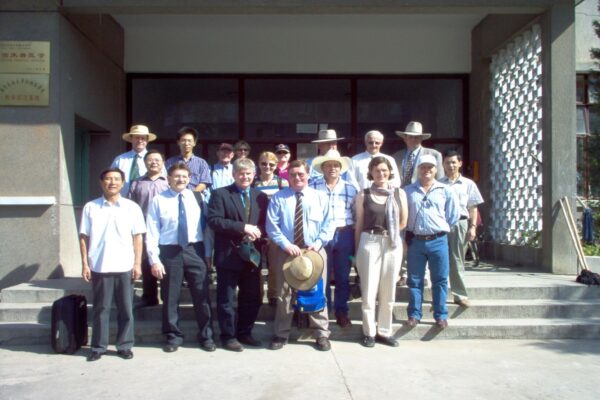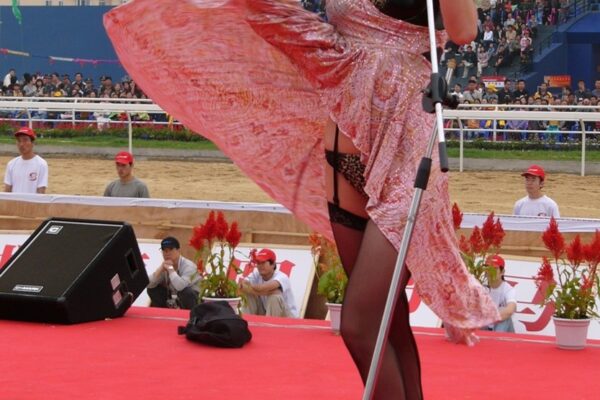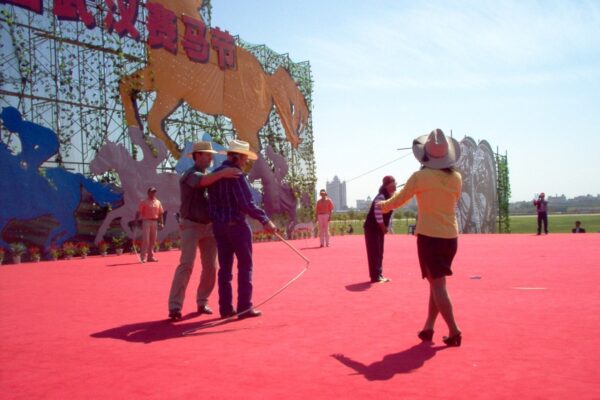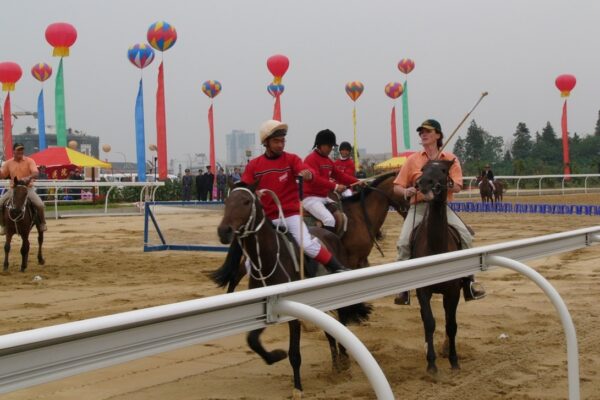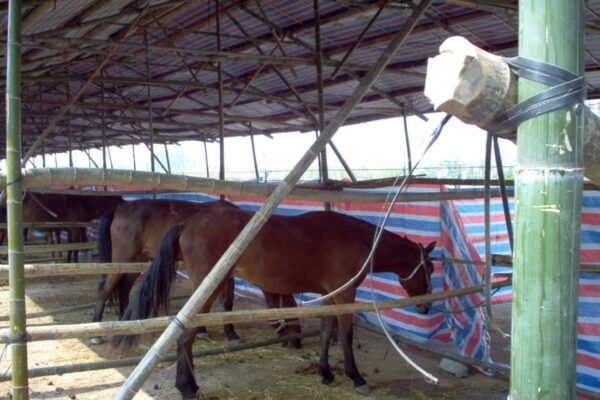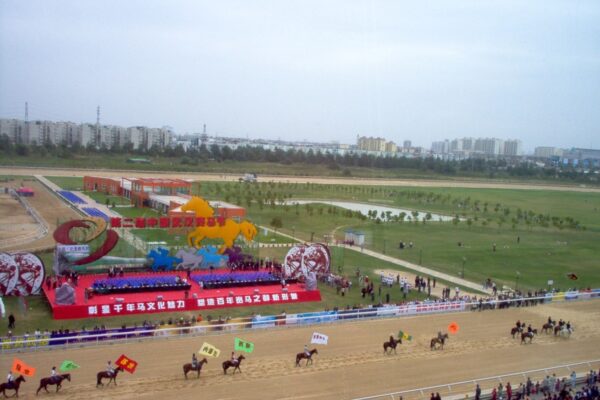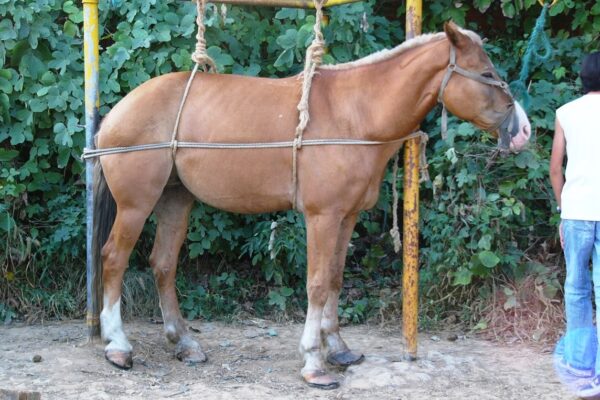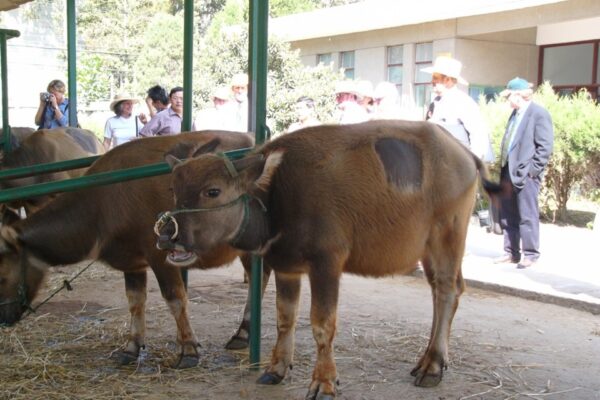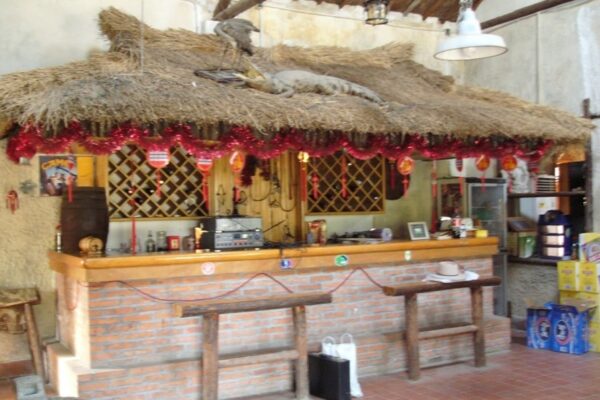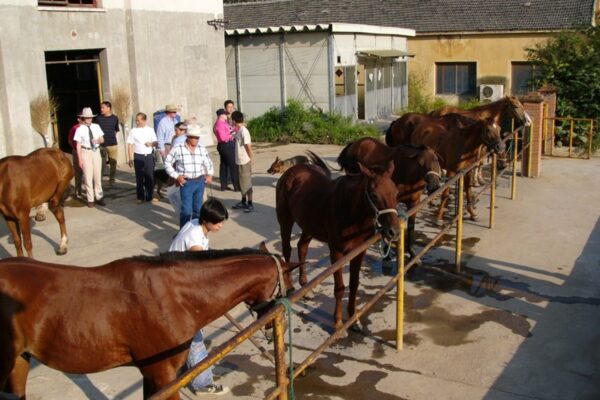Melbourne Cup Extravaganza @ Scone October 2010
Featured Image: I’m holding aloft the Melbourne Cup won by ‘Poitrel’ in 1920.
See: https://sconevetdynasty.com.au/poitrel/
See also: https://sconevetdynasty.com.au/colloquium-of-cups-2010/
See also: https://sconevetdynasty.com.au/melbourne-cup-150th-anniversary-tour-15th-october-2010/
This is one of the most famous of Melbourne Cups. I ‘borrowed’ it from Tim Moses of ‘Tralee’, Inverell; his father R L ‘Tiggy’ Moses inherited from his father R F Moses of ‘Fairways Stud, Muswellbrook. His father was F A Moses of ‘Arrowfield’, Jerrys Plains who owned and bred the horse with his brother W Moses. Tim was ‘apologetic’ about losing the wooden plinth or base? He needn’t have been. There wasn’t one! The plinth wasn’t added to the Cup until two or three years later.
Poitrel
The featured image is from a painting by Martin Stainforth in the possession of the artist.
Chestnut Horse 1914 by St Alwyne (imp.) out of Poinard. Winner of £26,919, including Melbourne Cup carrying 10st. (!) and all the principal long distance weight-for-age races in Australia. ‘Poitrel’ was a very high class stayer. He retired to his owners’ (Messrs. W. and F. A. Moses ‘Arrowfield Stud’) in 1921. Later he relocated to L.K.S. Mackinnon’s Maribyrnong Stud, Melbourne.
‘Poitrel’ was one of the greatest racehorses and sires of the early 20th century. His win in the Melbourne Cup carrying the massive impost of 10st still evokes disbelief in the most hardened of commentators.
See also: https://en.wikipedia.org/wiki/Poitrel
See also: Poitrel | Racing Victoria
Poitrel is one of only three horses to have won the 1920 Melbourne Cup carrying 10 stone or more. There was no dispute between his owners about who would keep the cup trophy. They had decided on the toss of a coin more than 10 years earlier who would own the first trophy they won and had taken it in turns since that day.
Biography
TRAINER: Harry Robinson
OWNERS: William and Fred Moses
RACE RECORD/STAKE MONEY: 37 starts: 17 wins, 3 seconds, 3 thirds/£26,920
Major Wins
- VRC Melbourne Cup (1920)
- AJC Spring Stakes (1918)
- Autumn Stakes (1918)
- AJC Plate (1919)
- AJC Randwick Plate (1919)
- AJC Cumberland Stakes (1919)
- Rosehill Rawson Stakes (1921)
About
Poitrel carried the handicap weight of 10 stone (63.5 kilograms) to victory in the Melbourne Cup. Only two other horses have ever won with more: Archer at his second successive win (1862) and the legend, Carbine (1890).
The chestnut horse was sired by British stallion St Alwynne from the imported mare Poinard, foaled in 1914 at Arrowfield Stud, New South Wales. Poitrel was a small foal, offered for sale but unwanted at the 1916 Sydney yearling sales. He was retained for racing by his breeders, the brothers William and Frederick Moses, throughout his turf career. Slow to grow and make his mark, Poitrel had his first big win in the 1917 AJC Summer Cup at Randwick. As a four-year-old in the spring of 1918, he caused a sensation when he defeated the champion New Zealand mare Desert Gold in the weight-for-age AJC Spring Stakes.
Poitrel was often described as plain and wiry. He also suffered from hoof problems, so he was sparingly raced. Nevertheless he blossomed to become the best stayer in Australia. He was trained astutely throughout his career by H.J. Robinson. In Poitrel’s four- and five-year-old seasons, he proved almost unbeatable, winning 16 races in Sydney including two dead-heats. His usual jockey was Ken Bracken. Among the other horses he vanquished were acknowledged champions in their own right, Gloaming and Eurythmic. For this reason, as a six-year-old, he was allocated the handicap of 10 stone for the 1920 Melbourne Cup.
His victory under this heavy burden was Poitrel’s only appearance in Melbourne, but racegoers at Flemington responded to the achievement. He started wide, trailled the field for most of the race, and came home in the final stages of the race to win by half a length. Some reporters called it the performance of a century: ‘He is entitled to be included among the limited band of great horses that have raced in Australia’.
Poitrel was retired to Arrowfield, where he stood until the stud was sold, in 1924. He then then went to L.K.S. Mackinnon’s Maribyrnong Stud, Melbourne. The best of his progeny was Begamba who won St Leger Stakes in three states. Finally he was sold to Tarong Station, north of Toowoomba, Queensland, where he died in May 1932.
Poitrel is one of only three horses to have won the 1920 Melbourne Cup carrying 10 stone or more. There was no dispute between his owners about who would keep the trophy. They had decided on the toss of a coin more than 10 years earlier who would own the first trophy they won and had taken it in turns since that day.
“I saw hundreds of people around me, whom I knew had lost their money on the Cup, become frenzied when they realised the magnitude of Poitrel’s accomplishment.” (Smith’s Weekly, 20 November 1920)
